Based on his published letters,1940 was a busy year for T.S.Eliot. He was based in London and working at Faber and Faber as editor and director. I’ve picked out a few (mostly) bookish highlights here.
In January he enjoyed an evening with Stephen Spender, and tut-tutted about his domestic tangles commenting:
The irregularities of that group of young people are rather more intricate than the alliances of the Bourbon-Parma … It is odd to see a younger generation living out the creed of Bertie Russell and making just as much a mess of it.
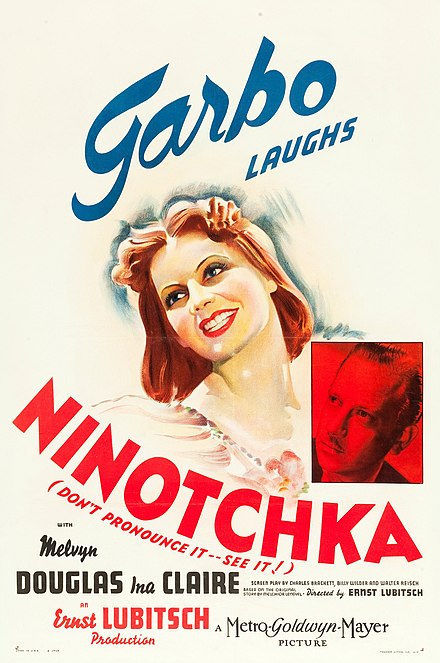 He had a meal out in the West India Dock Road, noting the spice of romance of the East End on a moonlit night and …the Romance of Limehouse. This was of course during what was called the phony war – that period of relative quiet with the blackout in place but no enemy action in the night sky.
He had a meal out in the West India Dock Road, noting the spice of romance of the East End on a moonlit night and …the Romance of Limehouse. This was of course during what was called the phony war – that period of relative quiet with the blackout in place but no enemy action in the night sky.
He feels more and more marooned in London and asks whether it is rather old-fashioned to be shocked by W.H. Auden wanting to become a naturalized American at such a time.
He turns down the poems of Mervyn Peake and comments that it is the coldest winter since 1894.
In February he contracts bronchitis, writes some clerihews and works on East Coker, the poem that would become Part Two of The Four Quartets. He has dinner with William Empson who is dirtier than ever and dines with the Woolfs at Mecklenburgh Square.
In March he publishes Auden’s Some Poems and Ezra Pound’s Cantos LII – LXXII after having advised him in 1939 to edit out some egregiously anti-semitic lines. He sees Ninotchka starring Greta Garbo at the Ministry of Information at the invitation of John Betjeman.
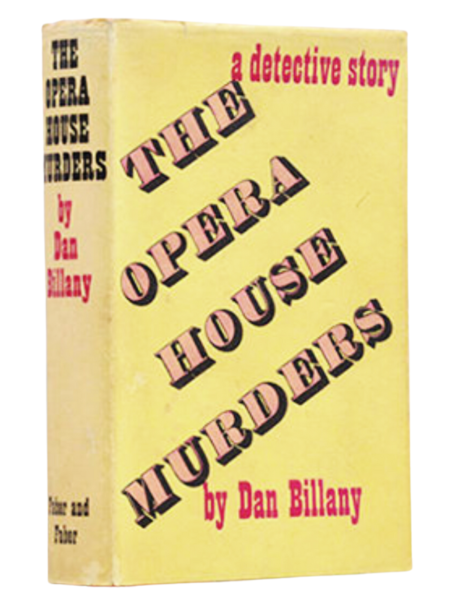 In April he admires and accepts for publication Dan Billany’s The Opera House Murders.
In April he admires and accepts for publication Dan Billany’s The Opera House Murders.
Eliot was a big fan and a discerning reader of detective fiction. He loved Arthur Conan Doyle, and was given to quoting long passages from the Sherlock Holmes stories verbatim at parties, and to borrowing from them for his poems. The line “On the edge of a grimpen,” from East Coker alludes to the desolate Grimpen Mire in The Hound of the Baskervilles.
He even wrote guidelines for good detective fiction:
“The story must not rely upon elaborate and incredible disguises….Disguises must be only occasional and incidental.”
“The character and motives of the criminal should be normal. In the ideal detective story we should feel that we have a sporting chance to solve the mystery ourselves; if the criminal is highly abnormal an irrational element is introduced which offends us.”
“The story must not rely either upon occult phenomena or, which comes to the same thing, upon mysterious and preposterous discoveries made by lonely scientists.”
“Elaborate and bizarre machinery is an irrelevance….Writers who delight in treasures hid in strange places, cyphers and codes, runes and rituals, should not be encouraged.”
“The detective should be highly intelligent, but not superhuman. We should be able to follow his inferences and almost, but not quite, make them with him.”
Seems to me that Billany’s book breaks some of these “rules”.
It opens promisingly enough with a small boy who has climbed a tree to collect conkers (horse chestnuts). He witnesses a gruesome murder on the quiet road below.
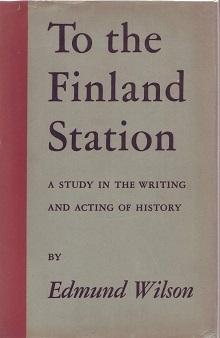 This is not one of those cozy puzzles but a grim parade of murder and violence, of cardboard characters and a detective who is not only superior to Scotland Yard but also kills with impunity and is able to survive a knuckleduster to the jaw, blows from a hammer to the head, and the getting a finger shot off.
This is not one of those cozy puzzles but a grim parade of murder and violence, of cardboard characters and a detective who is not only superior to Scotland Yard but also kills with impunity and is able to survive a knuckleduster to the jaw, blows from a hammer to the head, and the getting a finger shot off.
There’s plenty of blood and killing of all kinds. It’s all rather over the top and I don’t know why I didn’t just put it down. I suppose I wanted to know who did it and why and why but now I can’t remember. The characters don’t care much for each other even when they are related and this reader did not either.
In May, Eliot turned down Edmund Wilson’s To the Finland Station writing: I doubt whether we should have wanted it even after Munich. It is very good, it is very serious, and I think it is quite outside of the frame now.
Wilson wrote an exasperated essay in the pages of The New Yorker in 1944 titled “Why Do People Read Detective Stories?” He felt that he’d outgrown the genre by the age of twelve and could not understand why everyone – including his then-wife Mary McCarthy – was so addicted to them.
In May, Eliot turned down an English translation of Jean-Paul Sartre’s first novel Le Nausee (1938) He comments dismissively on Auden’s Another Time and published East Coker in New English weekly.
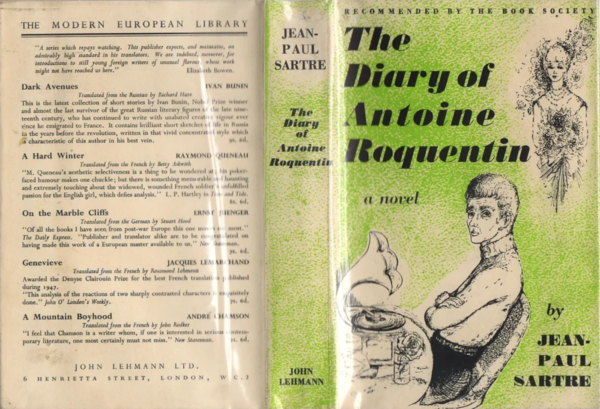
At the end of the month, he takes first air flight from Liverpool to Dublin to deliver the first W.B. Yeats memorial lecture at the Abbey Theater.
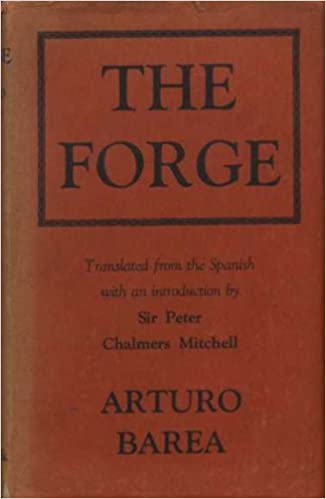
In July Eliot signs up for training as an ARP (Air Raid Precautions) warden in Kensington and receives instruction in the operation of the stirrup pump.
Certainly, I would say that resistance to Germany’s ideology cannot be carried out by men who are unwilling to die, or to sacrifice everything individually dear to them, including social privileges.
He helps secure an exit permit for Pamela Travers, of Mary Poppins fame, who has been invited to do a lecture tour of America, He campaigns against the proposed purchase tax on books.
He helped translate and later (January 1st 1941) publishes Arturo Barea’s The Forge which he expurgates for libel and sexual references
In August, Eliot passes the ARP test and receives a whistle but not a uniform.
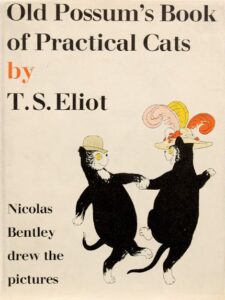 In September, Eliot spends weekends at the Mirrleeses house in Surrey where he insists on paying his way and takes pleasure in cutting bracken for the compost heap. Hope Mirrlees is a good friend…If she does get on my nerves at times, that is as much the fault of my irritability.
In September, Eliot spends weekends at the Mirrleeses house in Surrey where he insists on paying his way and takes pleasure in cutting bracken for the compost heap. Hope Mirrlees is a good friend…If she does get on my nerves at times, that is as much the fault of my irritability.
And Faber publishes East Coker
I want to do another Quartet, provisionally entitled The Dry Salvages (emphasis on vages – see Chart of Cape Ann).
In October he writes: Life in London is both a strain and a bore. Every week produces a fresh deposit of time bombs or aerial torpedos or land mines in the vicinity of Bloomsbury.
He gives advice to Vernon Watkins to wait for more poems before publication of a collection and he publishes an illustrated version of Old Possum’s Book of Practical Practical Cats with drawings by Nichola Bentley. They were a bit of a shock to me at first but I am getting used to them.
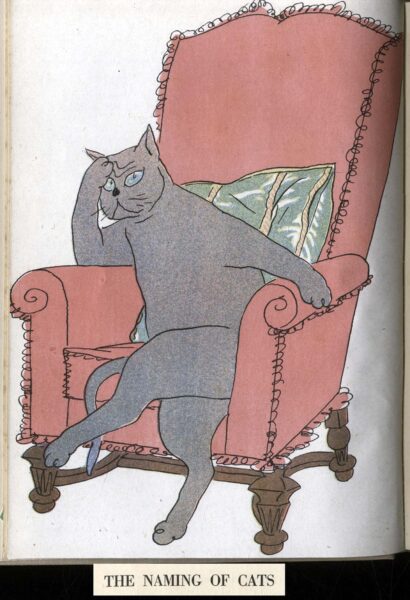
By the end of the year, he had completed The Dry Salvages and was contemplating the last of the quartets provisionally entitled Little Giddings.
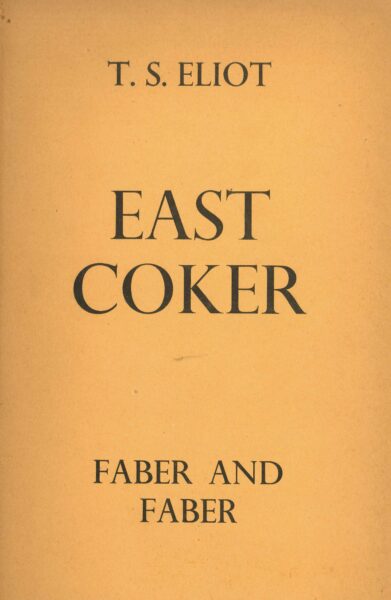 And so what of East Coker?
And so what of East Coker?
First of all, it’s short – just 200 lines in five marked numbered sections. And I love it. I like the how lines loop about yet each takes you forward and how Elliot dwells on all the big themes. Perhaps you need to take some of it with a shovel of salt, but I can’t help but hear his lugubrious reading voice as quietly gleeful as he lists all the important great and the good who will all end up returning to dust along with the rest of us. It all seems a long way from the plot and prose of The Opera House Murders.
For fun, I took myself off to the ChatBot, wondering what it could tell me about the critical reception of East Coker. In so doing the Bot managed to muddle it up with both The Wasteland and The Family Reunion and ascribe some of the lines to Hart Crane while also telling me that the most famous lines were from Burnt Norton. So that was good and put me in mind of OuLiPo and the N-7 generator which – although imperfect – manages to switch out most of the nouns for those that appear seven entries down in the dictionary.
ChatBot was not very accurate did manage to off-load some weighty pronouncements on literary merit of the kind that used to be found most often in undergraduate essays. It erroneously identified the passage below but opined that East Coker: is a powerful meditation on the human condition and the limits of our understanding.
OK. Fair enough for a machine programmed by computers.
So here’s the opening in the original and via the N+7. Do you have a preference?

Then I wondered whether Chatbot could do OuLiPo and switch out the nouns. With a little encouragement (rephrasing the request and the bribe of a chocolate biscuit) it managed to crank some out.
So now – with a nod to Gert Loveday at Fun with Books, read these aloud in your best and most mournful T.S. Eliot intonation. Which version do you prefer now? Who does it better? N+7 or ChatBot?
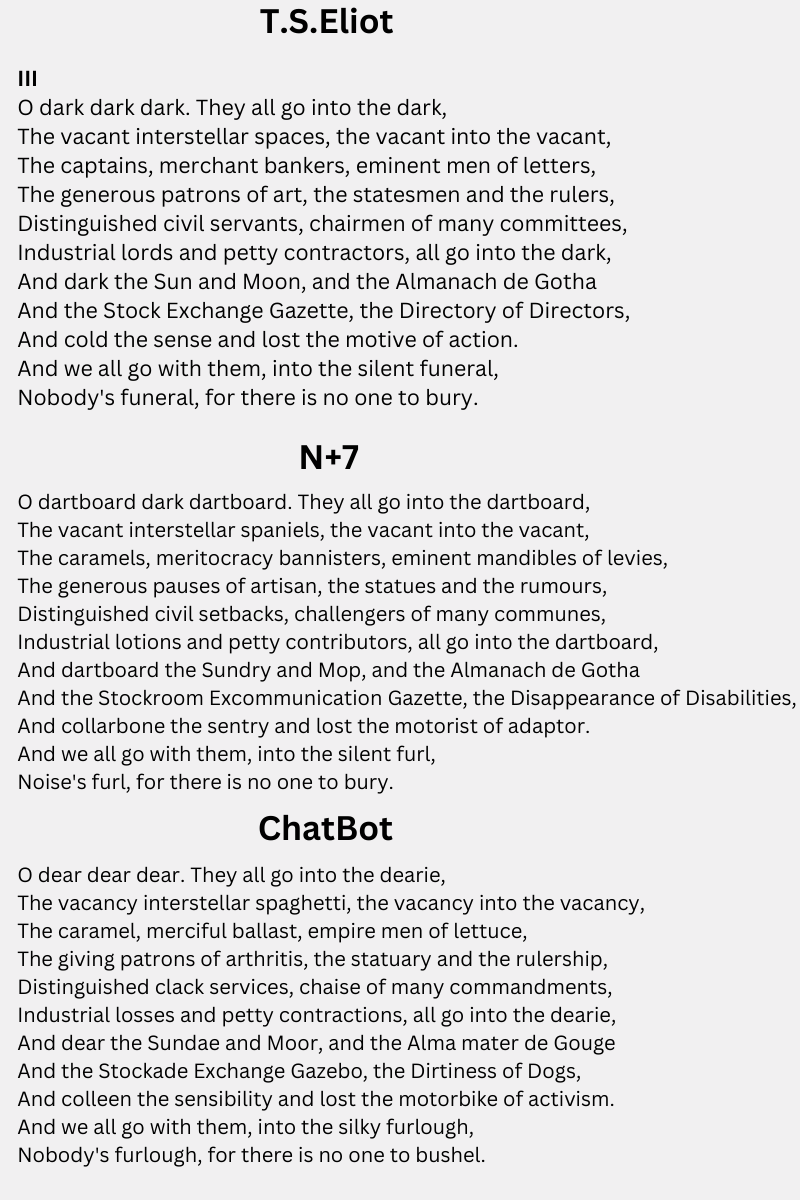
And just because I have it – one more. This is how it ends, not with a bang or a whimper but with porpoise and porridge and a begonia.
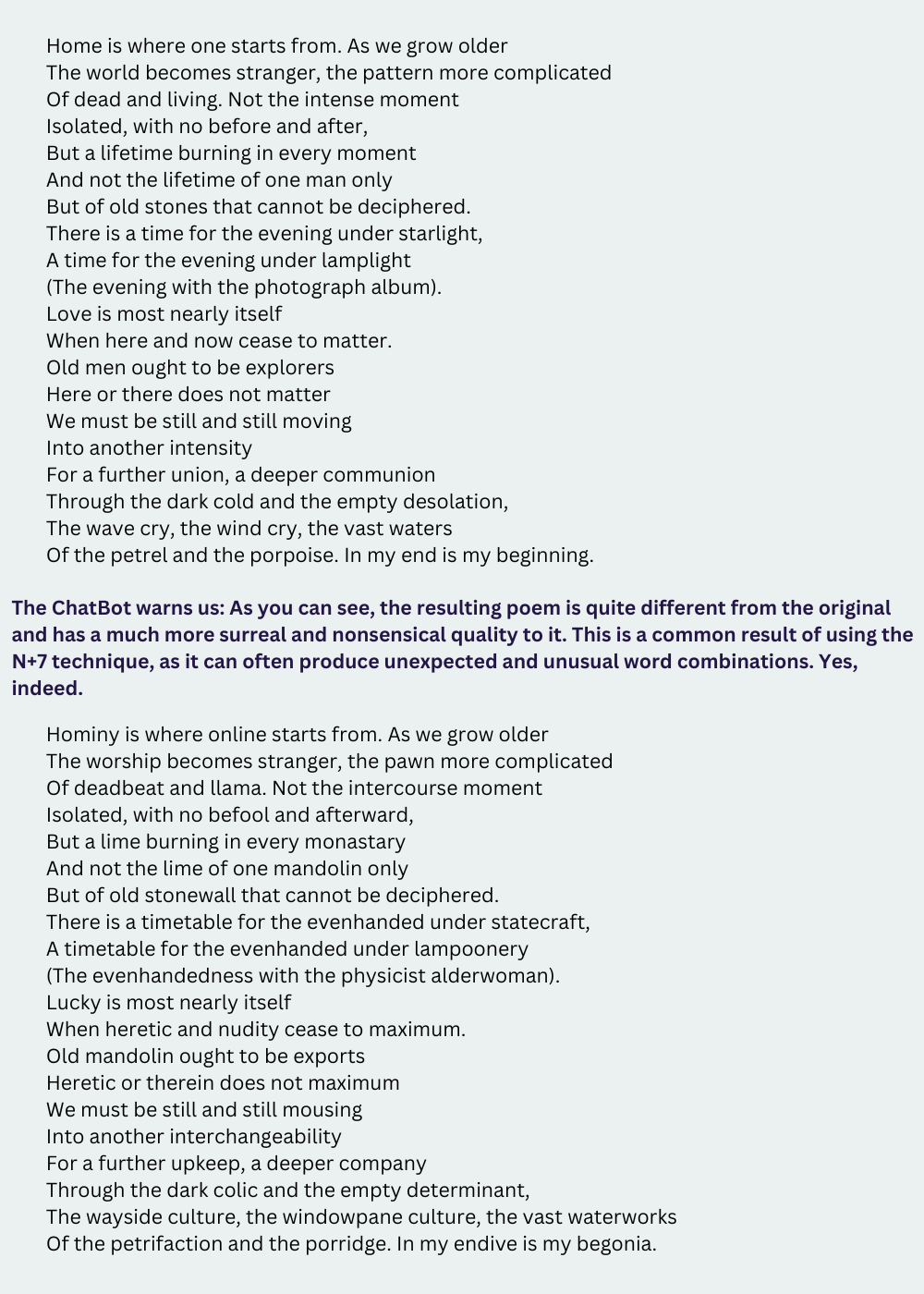
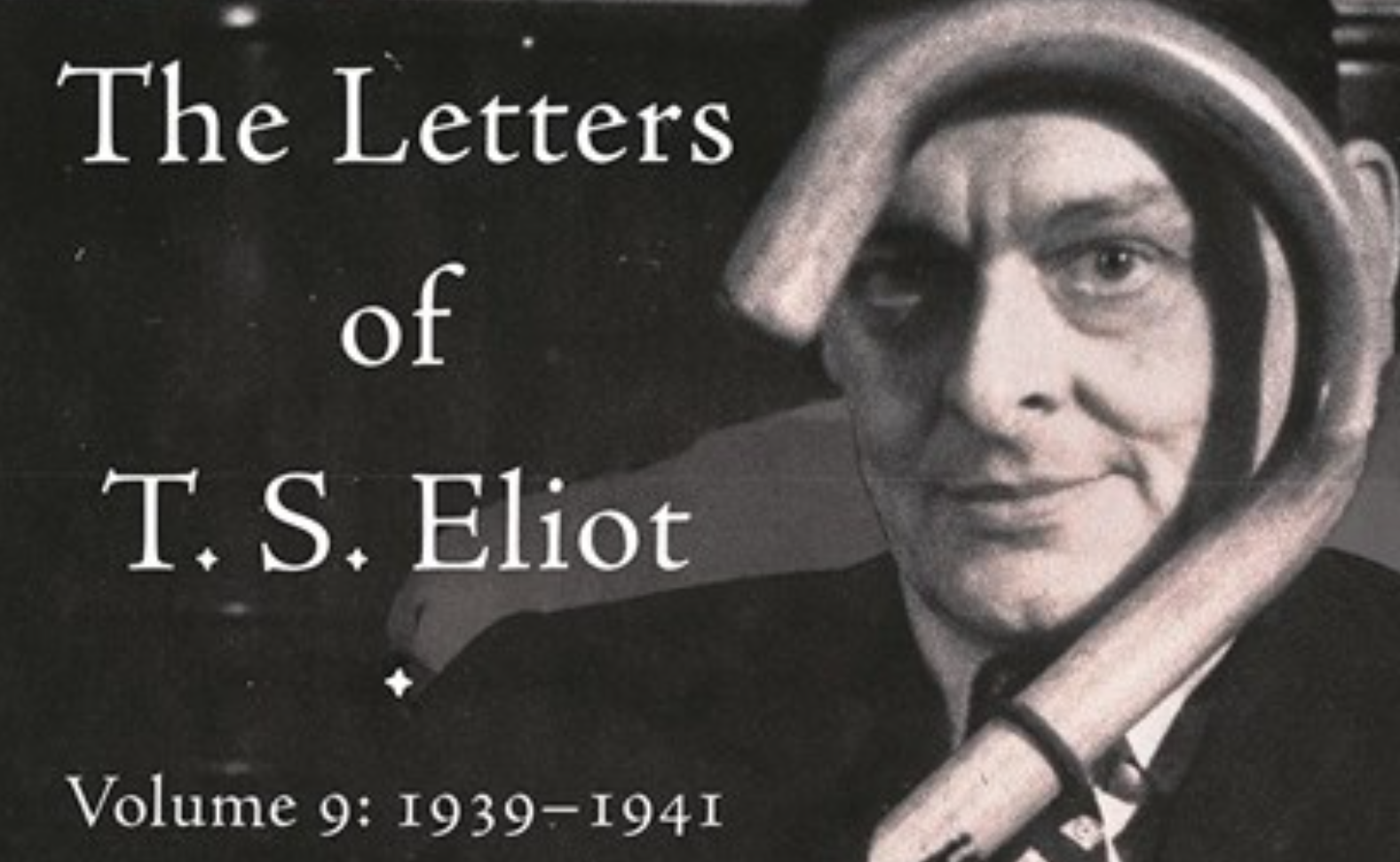


I think it all rots down and bracken would help with aeration maybe.
You take me back to my youth when I spent many hours listening to his mournful tones. I think I knew the whole thing by heart. It would have been hard, though, to commit these new versions to memory. And you’re right that the Gerts have a special interest in the old TS. Lilian Bracegirdle in Writing Is Easy made her name with Eliot-inspired verse. But even she couldn’t rival these effusions. She’ll have to content herself with Gertrude Stein.
And speaking of gobbledygook, here is a comment on a twitter feed about the response given by a Republican house member to a question asking for facts. This is the twitterer’s version of what he said:
“Rutabaga in a bicycle of cold eyelash. Stop sign tractor seat! Tractor seat! Chocolate kittens aren’t slap my thigh for rectangular hummingbird.”
Who needs OuLipo?
Great stuff!
Oh yes, I like that very much: “In my endive is my begonia”. Priceless.
Eliot’s “Humankind cannot bear very much reality” is well observed….but we best not overlook the looming reverse image: Reality cannot bear very much more of humankind.
The everyday and mundane is so fascinating isn’t it? I love the part about staying with Hope Mirrlees, an irritating good friend, I’m not sure you should put bracken on the compost heap though, seems a bit spiky!